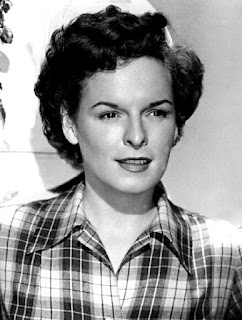 |
| Margaret Forster |
Initially, as I began reading this novel, I felt overwhelmed by the spectrum of the central characters, during the first few pages. Still, I soon came to realize the rightness of this approach.
Beginning with a candid description of a weekly Sunday lunch, quite elaborate, prepared by one daughter-in-law of the pivotal figure, Grandma. At no point is this elderly lady, fast approaching the final stage of senile dementia, referred to or addressed in any other way.
The details of her gastronomical habits are depicted with gritty grotesqueness. This proves vital in that the reaction of each family member to what, stretching political correctness to its outermost boundary, might be dubbed “eccentricities. These members range from her grown children and spouses, to her nearly grown grandchildren. While each of them cherishes her in their way, their level of aggravation depends on the degree of care asked of them.
To some extent, Ms. Forster deploys Grandma’s tendency, brought about by her dementia, as a tool to voice the social commentary at the core of this book. By way of example, before she can agree to accept so much as a potato at lunch, Grandma must repeatedly ask “Have the men had enough?” Inferentially, women could only eat after the men have gorged themselves on a meal prepared by the women.
Arguably, during an era when men were obliged to do exhausting farming or mining work, their need for sufficient food had to be preeminent. Thus, as a symptom of senile dementia involves retention of long-term memories, Grandma’s deepest recollections center upon the men’s satisfaction, full-bellied and gratified. She is not aware of the fact that the level of labor for men has become largely sedentary, and limited to eight hours on week-days.
Conversely, care of an elderly woman who can no longer deal with her most basic needs is viewed by them as “women’s work.”
Of course they are only joking, just being playful. What sort of modern woman could interpret such comments as anything more? Still, when a crisis occurs, it is these female good sports who are expected to clean up the consequent mess, on whatever level.
As months pass, and grandma’s awareness dwindles to lack of consciousness of her surroundings, the women become more enmeshed, while the men withdraw further. All too soon, these women learn the most expedient way to extricate Grandma and themselves from an awkward scenario is to “remind” her the men will be coming in for their lunches or dinners, and are likely to become cross if she does not have their meal prepared to perfection.
The Overall story is told from the perspectives of two women, related to Grandma in various ways. The reader is invited to join them in trying to gauge to what degree, if any, Grandma makes use of her dementia as a means of maneuvering in order to gain extra care and companionship. In all probability, Grandma herself does not know the genuine answer.
A deep sense of sadness pervades this book, much of it voiced by Hannah, a seventeen-year old student, compelled, far too early, to weigh her ideals against realities. What will she do if her mother, so wise and strong, one day becomes like Grandma? In addition, although she does not address it directly, Hannah, even at her young age, knows she is not immortal.
She has no choice but to see the ghastly nature of growing old in a society where there is no bulwark between the loneliness of longevity and the societal inability to do more than sedate, confine to a hospital bed, and then decide, if pneumonia sets in, whether to provide antibiotics, or “let nature take its course.”
In the ultimate sense, the question becomes not only what is best for the patient, but for the family as a whole, when nothing but further deterioration can be expected from a person experiencing senile dementia.



